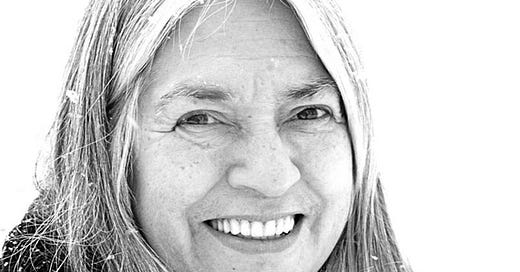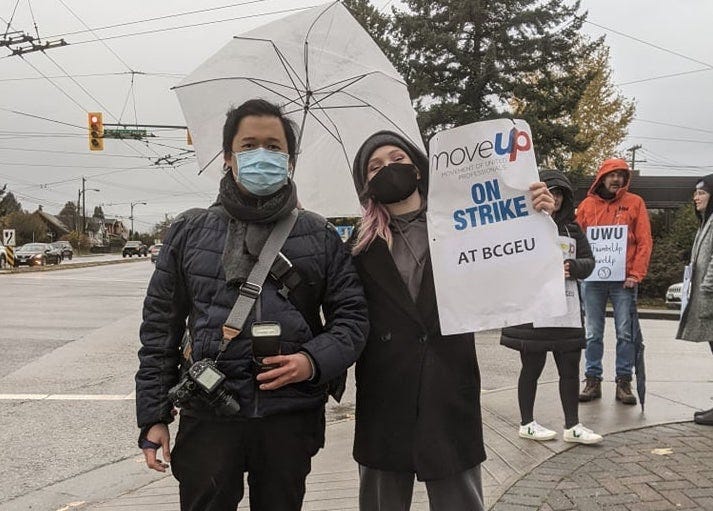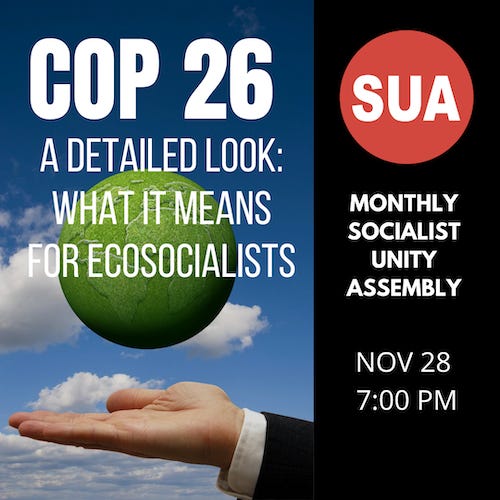Local
Vancouver City Council adopts vacancy control in SRO hotels
On Wednesday, November 17, Vancouver City Council voted in favor of an amended version of the recommendations in the staff report on “Vacancy Control Regulations in Single Room Accommodation (SRA) Designated Properties.” The final text of the amended motion as passed by city council is as follows:
THAT, subject to operating funding approval in the 2022 budget, Council direct staff to implement a vacancy control policy for Single Room Accommodation (SRA) designated properties to protect SRA rooms from rapid rent escalation between tenancies, discourage further displacement of low-income residents, and encourage tenancy stability.
B. THAT Council receive for information a funding request of $500,000 to implement vacancy control in Single Room Accommodations (SRAs) which has been identified as a potential investment for consideration as part of the 2022 Operating Budget process.
C. THAT, subject to approval of Recommendation A and approval of operating funding in the 2022 Operating Budget as per Recommendation B, Council
i. Approve the “Vacancy Control in Single Room Accommodation (SRA) Designated Properties Policy” as generally set out in Appendix A to permit a rent increase following a change in tenancy as follows:
a. Single Room Accommodation (SRA)-designated rooms renting at or above $500/month are generally permitted a rent increase following a change in tenancy by an amount equal to the Inflation rate;
b. Single Room Accommodation (SRA)-designated rooms renting below $500/month are generally permitted a rent increase following a change in tenancy by an amount equal to 5% plus the inflation rate, but once the increased rent for the designated room reaches $500 per month, rent may only increase by the inflation Rate;
c. Single Room Accommodation (SRA)-designated rooms renting below $375/month, the current shelter component of income assistance, can increase the base rent after a period of vacancy up to $375
ii. Approve, in principle, amendments to the License By-law and the Ticket Offences By-law, to implement vacancy control as generally set out in Appendices B and C respectively, subject to revisions to implement increases as referenced in recommendation (C)(i)(c); and iii. Instruct the Director of Legal Services to bring forward for enactment, upon approval of the funding request for this policy in the 2022 Operating Budget, the proposed amendments to the License By-law and Ticket Offences By-law as generally set out in Appendices B and C respectively.
D. THAT, subject to approval of Recommendations A and C, in consideration of the impact of vacancy control on private owners, Council instruct staff to:
i. Proactively engage private owners of Single Room Accommodation (SRA)-designated properties, who are interested in providing housing to low-income residents, to explore opportunities via the SRA By-law and SRA Grants programs to support critical building upgrades while securing Affordability;
ii. Increase the frequency of the Low-Income Housing Survey from biennial to annual, and include reporting on the impact and effectiveness of the Vacancy Control in Single Room Accommodation (SRA) Properties Policy within this report;
iii. Accelerate current engagement with senior levels of government on the development of a Tri-Partite Single Room Occupancy Strategy to fund the renewal and/or replacement of existing Single Room Accommodation buildings with dignified, self-contained housing, at shelter rates for very low-income residents, and report to Council on additional funding requirements; and
iv. Undertake a review of the vacancy control Single Room Accommodation (SRA) policy in 2025 (Year 4), including impact on private owners, tenants, and changes in the availability and affordability of the existing stock, and report back to Council in 2026 (Year 5) on the impacts of on-going implementation of the policy.
E. THAT Council request that Mayor write a letter to the Federation of Canadian Municipalities to advocate to the federal government for the return of the expanded Residential Rehabilitation Assistance Program with the desired outcome of stabilizing rents and improving living conditions in Single Room Accommodation.
FURTHER THAT Council direct staff to work with the Federation of Canadian Municipalities to advance policy advocating to the federal government for the return of the expanded Residential Rehabilitation Assistance Program with the desired outcome of stabilizing rents and improving living conditions in Single Room Accommodation.
Section E, which was severed from the main motion at the request of Councillor De Genova, passed unanimously. Nine councillors plus Mayor Kennedy Stewart voted in favour of the remainder of the recommendations, with Councillor De Genova voting against.
During council debate on the motion, Councillor Hardwick argued that it would not be possible for most of the private owners of SRO hotels to stay in business under these regulations and that therefore council should state an intention to buy up the privately-owned SRO hotels and seek funding to accomplish this task. Councillor Kirby-Yung argued that SRO’s are an outdated housing model and that we should move towards publicly-owned self-contained units for Vancouver’s most vulnerable residents.


Photo Credit: Derrick O’Keefe
Tenants and supporters rally against demovictions at 37th and Oak in Vancouver
Tenants living in seven houses and duplexes at 37th and Oak in Vancouver, along with supporters -- 15 people in total -- held a rally on Sunday, November 14, to protest the demoviction of the tenants by their landlord. The landlord intends to build townhouses for home-ownership which the tenants will not be able to afford. The rally was organized by two of the tenants, Nathan Davidowicz and his sister. One of the attendees at the rally was Vancouver City Councillor Jean Swanson. The tenants of the houses are calling on the BC government to help acquire the land to build rental housing.
Read More:
Vancouver transit advocate to lose his home in Cambie rezoning as councillor says city creating ‘elite neighbourhood
Photo: Michael Tseng with Yvonne Hanson on the picket line
Tentative agreement reached between MoveUP and the BC General Employees’ Union (BCGEU)
A tentative collective agreement for administrative staff was reached last week after a day and a half of job action. Part of the negotiations, mediated by Vince Ready, involved revised “work from home” language, something many unions will be negotiating as part of their collective agreements in a post-Covid future.
As explained well on the CUPE website, “Work from Home” arrangements are important to prevent outbreaks of Covid, but unions may also want to negotiate a continuation of work from home arrangements on a more permanent basis as a collective agreement right.
“Employees are happier, healthier, and more productive when they work from home,” notes Yvonne Hanson, MoveUP union member and BCGEU Employee. “We save time in traffic which impacts our mental health, we have time to cook healthier meals, get more sleep, spend more time with our pets and family members at home, and all of this is possible with no loss in productivity. So why would an employer not want that for their employees? There is no fathomable reason, other than surveillance and control.”
Photo Credit: Independent Jewish Voices on Facebook
Remembering Marty Roth
The Following is reprinted from Independent Jewish Voices on Facebook:Marty Roth, 1934-2021
Independent Jewish Voices Canada mourns the passing of one of our beloved members, Marty Roth, who left us on October 18th. Marty was an incredible person, a true force of nature, and a joy to work with.
Marty was heavily involved with Independent Jewish Voices Vancouver, and more recently the national steering committee, right up until his last days. He was an indefatigable on-the-ground activist, handing out leaflets at demonstrations in which IJV took part, and playing a major role in organizing these activities. In group discussions, he offered well-thought-out ideas and principled arguments in defense of his positions, forthright and often feisty, always leavened with a sense of humour, never compromising his support for justice. He was an embodiment of solidarity, love, and Palestinian liberation.
IJV extends our love and condolences to Marty's family: his wife Martha, and children Jennifer and David.
We miss you, Marty. May your memory be for a blessing.
Provincial
Abbotsford November 17, 2021: Devastating Flood and black smoke from fire in the city and farmland after storm. Source: Shutterstock
The great deluge
A State of Emergency has been declared in BC after an atmospheric deluge hit the Pacific NorthWest, with severe flooding in the communities of Abbotsford, Merritt, and Princeton. Multiple fatalities have been confirmed as a result of the storms. Hundreds of people were left stranded in their cars by the mudslides and had to be airlifted to safety. More than a thousand people were trapped in Hope from Sunday to Wednesday. Vancouver is cut off from the rest of Canada by road. Search and Rescue teams are using dogs to try & locate victims while the Port of Vancouver’s rail link to the rest of Canada has been incapacitated.
This flood occurred mere weeks after Extinction Rebellion led Vancouver’s “14 Days of Disruption” where David Suzuki spoke and warned that humanity is on a “suicidal path” and that governments must end support for coal, oil and gas. “The truly overwhelming economic fact is that the accelerating impacts of global heating—from floods, droughts, and wildfires to disease spread, pollution, and refugee crises—are extremely costly and will get even more so if we fail to confront climate disruption,” wrote David.
More arrests of indigenous land defenders in Wet’suwet’en territory
On November 14, the Wet’suwet’en nation kicked coastal gaslink off of their territory in Northern BC.

Three days later on Wednesday, November 17, the BC NDP government sent a plane full of RCMP to arrest the indigenous land defenders.


Photo Credit: The Tyee
Remembering Lee Maracle
The following is a news release from the Union of BC Indian Chiefs:UBCIC Remembers Lee Maracle, Beloved Indigenous Activist and Acclaimed Writer and Poet
News Release
November 16, 2021
UBCIC Remembers Lee Maracle, Beloved Indigenous Activist and Acclaimed Writer and Poet
(Xʷməθkʷəy̓əm (Musqueam), Sḵwx̱wú7mesh (Squamish) and sel̓ílwitulh (Tsleil-Waututh)/Vancouver, B.C. – November 16, 2021) The Union of BC Indian Chiefs (UBCIC) mourns the loss of the beloved and incomparable Lee Maracle. A celebrated and acclaimed writer, poet, teacher, and activist, Lee Maracle revolutionized Indigenous feminist literature in Canada and gave a poignant, unflinching voice to the stories of Indigenous women and their experiences with the destructive forces of discrimination and racism.
“Lee Maracle was a titan in the Canadian literature landscape who was not content to let colonial and patriarchal structures in Canada suppress voices like hers. A member of the Stó:lo Nation in southwestern B.C., Lee became one of the first Indigenous authors to be published in Canada with her 1975 autobiographical novel ‘Bobbi Lee Indian Rebel,’” stated Grand Chief Stewart Phillip, President of the Union of BC Indian Chiefs. “I hold a special, personal connection to Lee’s novel. “More than 40 years ago, I opened ‘Bobbi Lee Indian Rebel; and was drawn not only to Lee’s invaluable insights but to a particular photo of her sister Joan. I am eternally grateful for Lee’s wise and courageous spirit, and for introducing me to my future wife Joan with whom I have built a loving family together and have been married to for 44 years. Joan and I remember and honour Lee’s life and incredible, inspiring achievements.”
“Despite being told by publishers that “Indians couldn’t read,” Lee persevered and published a vivid and heart wrenching body of work that examines and reflects upon the impacts of colonialism and the racist and sexist sentiments affecting Indigenous women,” stated Kukpi7 Judy Wilson, Secretary-Treasurer of UBCIC. “Lee never shied away from speaking and writing the truth. Despite the challenges she confronted as an Indigenous woman, she not only honoured and incorporated the oral traditions of the Sto:lo, Squamish, and Metis people she descended from, but never hesitated to center and empower Indigenous women in her narratives. She will be forever remembered as a foundational figure in Indigenous feminist literature.”
“UBCIC will remember Lee with immense love, fondness, and gratitude. Because of her we have been blessed with a prolific and revolutionary body of writing that sheds light into the history of brutality that confronted First Nations in Canada. Her spark – her passion to convey and give voice to the reality that confronted Indigenous peoples – is immortalized in her captivating and beautiful essays, poems, and novels. As Lee once wrote: “for us racism is not an ideology in the abstract but a very real and practical part of our lives. The pain, the effect, the shame are tangible, measurable and murderous.” Lee effectively and proudly captured with emotion and beauty the stories and lives of our peoples, and we are all indebted to her for it,” concluded Chief Don Tom, Vice- President of UBCIC.
-30-
Media inquiries:
Grand Chief Stewart Phillip, President of UBCIC: (250-490-5314)
Chief Don Tom, Vice-President of UBCIC: (604-290-6083)
Kukpi7 Judy Wilson, Secretary-Treasurer of UBCIC: (c/o 778-866-0548)
UBCIC is an NGO in Special Consultative Status with the Economic and Social Council of the United Nations.
For more information please visit www.ubcic.bc.ca
Upcoming Events
COP26: A DETAILED LOOK: What it means for Ecosocialists
SUA Monthly Assembly Nov 28 7:00 pm. Zoom.
Upcoming Events | Vancouver Ecosocialists -- roundup of relevant events around Metro Vancouver and online
Media Roundup
Will BC Hydro be charged for the thousands of fish killed in Squamish?
Choice quote:
“For something like this to happen despite efforts since 2019 has shaken our confidence that this Cheakamus facility can ever operate in a manner that recognizes the value of Indigenous ways in respecting and protecting our lands, waters, and the life within it.” Squamish Nation.
“Making Communities Safe without the Police” - Boston Review.
Choice Quote:
“Harm requires repair. Punishment is not repair. Punishment is passive—it is done to us—accountability is active. It requires that we acknowledge what we have done, recognize its impact, express genuine remorse, make things as right as possible (ideally in ways defined by those harmed), and try to become someone who will not cause harm again. Accountability is difficult work, and, unlike the passivity of punishment, it produces positive change. In restorative justice processes, people look into the eyes of those that they hurt, listen to their pain, own their responsibility for that pain, and affirm their responsibility to fix it. Punishment only works to shame people. As Dr. James Gilligan has taught, shame is a core driver of violence; its cultivation runs contrary to the interest of safety. Accountability does the opposite; it recognizes human dignity. With that dignity comes an obligation not to be isolated, separated, and confined, but to make right. Punishment assumes that the only thing society can do with someone who has used their power to cause harm is to diminish that person and their power. Accountability instead assumes that that person, upright in themselves, can use their power to correct the harm.”
Ten ways to confront the climate crisis without losing hope -- Rebecca Solnit in the Guardian
COP26 climate summit ends in failure -- Patrick Martin at the the World Socialist Web Site
The War on Cub -- Episode 5 -- Belly of the Beast Cuba on Youtube
Description:
“On July 11, unprecedented protests erupted across Cuba. Most media organizations portrayed the demonstrations as a cry for freedom against Communism. But the reality was far more complex. Journalist Liz Oliva Fernández explores the root causes of the devastating economic crisis that has pushed Cuba to the brink. She takes the viewer to Cuba’s working class neighborhoods, where we see the impact of ever-intensifying U.S. sanctions during the COVID pandemic and the near fulfillment of a 1960 State Department memo justifying the purpose of the U.S. embargo: “[to deny] money and supplies...to decrease...wages, to bring about hunger, desperation, and overthrow of government.”









